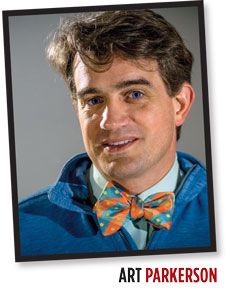8/1/2023
The Problem With Problem-solvers
Art Parkerson

The biggest problem with problem-solvers is that there aren't enough of them.
The planting line is stopped. Workers are standing around, looking at each other. “We ran out of mix.” Or “We’re waiting for the tractor to get back.” Or “The conveyor won’t budge.”
The dock is slammed. “We can’t load because we don’t have the right tags.” Or “There’s a last-minute addition!” Or “It’s not going to fit.”
Every business process is more fragile than we care to admit. That’s why many of us are skeptical about the promises of automation. Your business will always need responsible and creative people because machines can do a function, but they can’t solve problems.
Too many of our workers are useless at problem-solving. They throw up their hands and say, “Oh, well! Can’t do anything now!” And they seem to be happy about it. Do you think your new hires are becoming less resourceful and resilient every year?
Thank the Lord for problem-solvers! When you find ’em, keep ’em. Without them, everything will fall apart. They are the heroes, the saviors, the champions of your business.
Or are they? Listen up, because there are three types of problem-solvers—owls, foxes and oxen—and three ways they might actually be hurting your business in the long term.
The owls are good at diagnosing problems. Owls are logical and methodical. They have long memories. They store knowledge. However, their analytical approach might not translate to being great at leading people. Your mechanic is probably an owl. You better hope your IPM and plant health people are owls, too. These are the folks who identify the real source of the problem, and they don’t always explain or share how they solve things because it takes too long.
The big danger with owls—and all heroes in your business—is that they prevent your other workers from solving the problems they should solve for themselves. Owls don’t tend to parliament together. They like to fly solo and that inhibits growth in others on your team.
The foxes are clever and resourceful. They solve problems like MacGyver: give them duct tape, a stick of gum and a plastic straw … and they can get you out of a locked basement filling up with toxic gas. They think fast, jump early and dance right past problems that others find
insurmountable.
The problem with foxes is that their solutions aren’t really solutions at all—they are work-arounds. You can’t forbid “work-around” solutions, but they should definitely irritate. You don’t simply want results today. What about tomorrow? Your goal is to build a robust and predictable system that delivers consistent results every day.
The oxen are in it for the long haul. They are disciplined. They have endurance. They’re patient and hard-working. Oxen don’t prance around problems; they put their back into ’em. They never want to go around; they want to fight through. Their solution is, “Just work harder.”
You might think you know the problem with oxen—because you’ve heard the phrase “work smarter not harder” a million times—but, of course, every good manager, in their heart of hearts, knows that’s a false dichotomy. “Let’s work smarter and work harder!” Dedicated workers brave enough to meet whatever challenge or problem they face should never be called stupid. And owls shouldn’t be criticized as loners, either. Nor should foxes be held in contempt for their flashy and temporary tricks.
It can be overwhelming to own and operate a small business. A few problem-solvers on your team can have a huge impact. It’s your job to find them. It’s your job to make sure your owls, foxes and oxen all work together as a team, but not to solve problems! In the end, you shouldn’t want your problem-solvers to solve problems. You should want them to prevent problems before they even happen in the first place. GT
Art Parkerson works at Lancaster Farms, a wholesale nursery in Suffolk, Virginia. He’s also the creative director of PLANTPOP, a horticultural cinema studio that makes documentary films about people and plants. To say hello, write to art@lancasterfarms.com.